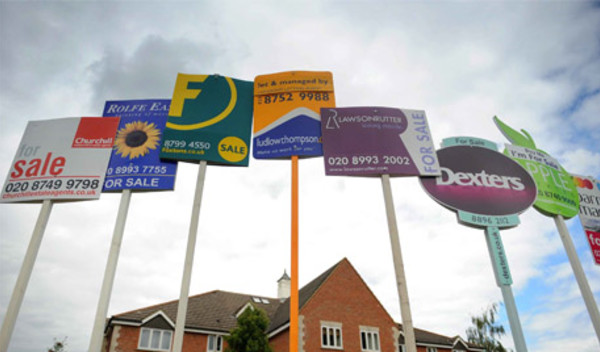

House prices in England and Wales increased 4.2 per cent on an annual basis in August and were up 0.5 per cent from July, to an average value to £184,682, according to the latest Land Registry data.
The figures indicated that the region with the most significant annual price increase was the east of England, increasing by 8.4 per cent.
London experienced the greatest monthly rise with a movement of 1.7 per cent, while the north west saw the lowest annual price increase of 0.2 per cent and the most significant monthly price decrease, down 1.4 per cent.
The number of properties sold in England and Wales for over £1m decreased by 17 per cent to 1,031 from 1,237 a year earlier. The most expensive sale in August was in London’s SW1 postcode area for £15m, while the cheapest was in Liverpool for £15,000.
Sales and repossessions during June, the most up-to-date figures available, showed that the number of completed house sales in England and Wales decreased by 13 per cent to 70,404, compared with 80,823 in June 2014
Repossessions in England and Wales decreased by 43 per cent to 498, compared with 868 in June last year.
John Eastgate, sales and marketing director of OneSavings Bank, commented that while house prices are still rising, it is encouraging to see some moderation in the rate of growth, with this being the slowest annual increase for two years.
“With wage inflation now at a six year high, more moderate house price growth bodes well for the long-term health of the property market, and it should help reduce some upwards pressure on affordability.”
He cautioned against focusing too much on the short term, as the fundamentals are such that growth is inevitable over the long-term.
“Ultimately, the supply and demand imbalance will sustain property values. The UK is still desperately short of new housing, yet a combination of historically low mortgage rates and improving access to mortgage finance is sustaining demand.”
Jeremy Duncombe, director for Legal and General Mortgage Club, agreed, adding that the lack of supply is continuing to drive a wedge between house price inflation and earnings growth.
“As a result, homes are becoming increasingly unaffordable, putting them out of reach for many aspiring homeowners. The longer this continues, the larger the housebuilding deficit will become, making the housing crisis progressively more difficult to resolve.”
He warned that it is crucial that the government and the industry work together to remove any barriers that may be limited construction.
“Housebuilders are faced with a shortage of skilled workers, materials to build with, and land to build on. It’s great to see that the government has announced a target of 1m new homes by the end of this parliament, but this is unlikely to come to fruition until these housebuilding constraints are addressed.
“Construction has been insufficient for a number of years, and we need a long-term solution to this problem, rather than just a short-term pledge.”
peter.walker@ft.com



